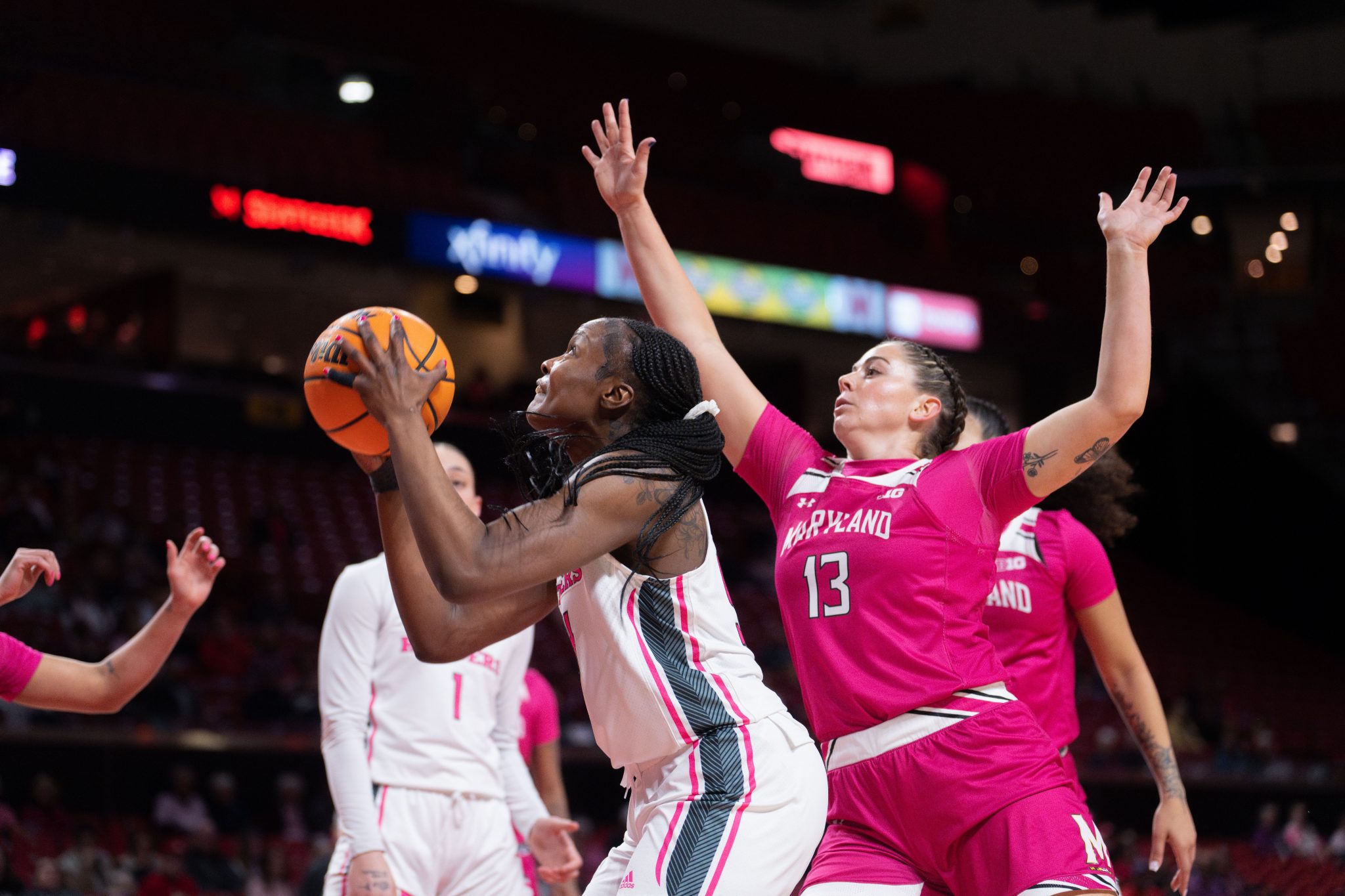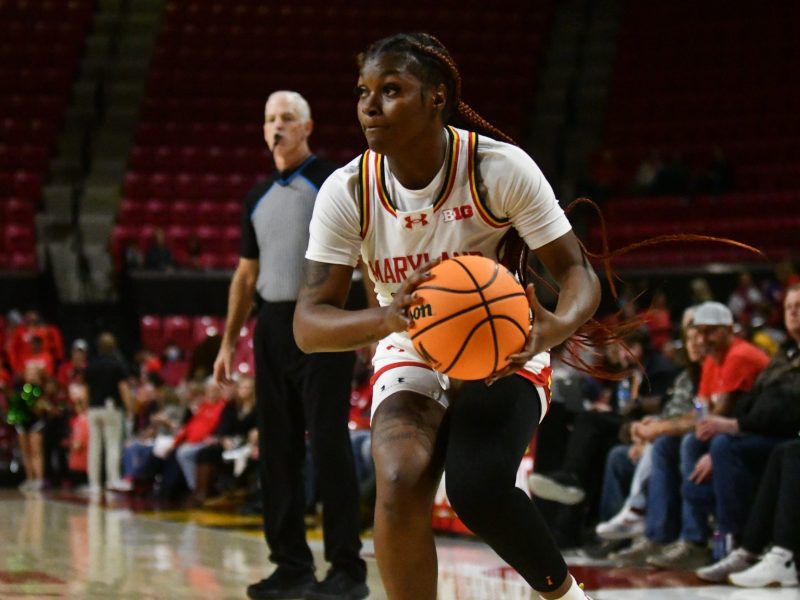Emily Fisher was perplexed by the complex defensive terminology coach Brenda Frese calls out relentlessly. The traditional “ice” pick-and-roll coverage is called “black” at Maryland, “peeling” is a way to switch and “white line” is a way to remember where to be in help-side defense.
Ambiguous expressions are at the core of Maryland women’s basketball defensive coverages. For a freshman like Fisher, indecision can lead to mistakes that take a player off the floor. So during a practice last week, Fisher turned to Faith Masonius, who knows Maryland’s system as well as anybody.
“What does that mean, what is [Frese] saying? I’ve never heard that before,” Masonius recalled Fisher saying.
“Okay, I got you,” Masonius said, before boiling the word down to a familiar concept for Fisher.
Maryland’s longest-tenured player wants to become a coach someday. She’s been around high-level coaches, observed the game from the bench after being sidelined with an injury and has consistently carved out a role with the Terps. Her playing career in College Park is winding down, but her potential future as a coach is approaching quickly.
Players and coaches around the program say, in many ways, she’s already one.
Brinae Alexander said Masonius sends a daily text in the team’s group chat to ensure nobody sleeps through practice. Shyanne Sellers joked she can act like a mother. While at home during the COVID-19 pandemic, she instructed her nine siblings through drills using water bottles in their backyard.
Masonius’s communication is ubiquitous in conversations about her. Her voice is resounding during games, both on the bench and while playing. That is not a coincidence — she is intentional about every word her teammates hear, she said.
[Maryland women’s basketball dominates Rutgers in 81-62 victory]
The graduate student played with older AAU basketball teams growing up, which helped her absorb different styles of leadership from her more experienced teammates.
Kaila Charles taught her being the loudest voice doesn’t always equate to being the best leader. Charles showed Masonius leadership can be achieved without many words, but the two are not the same type of player, or leader.
Charles averaged more than 14 points per game in her career and was a second-round WNBA draft pick. Masonius’s stats pale in comparison. She has never been a leading scorer, averaged more than seven points per game or played more than thirty minutes per game.
Six years ago, Masonius was a different player. She was a top-50 prospect, averaging more than 20 points per game. She scored more than 2,000 points in her high school career.
Her scoring has plummeted in college, but sometimes she needs to remind herself of the Masonius of the past.
“Trying to look back on my high school self and be like ‘look you can do it, you can score,’” Masonius said.
Masonius’s unselfishness has stood out over her five years in College Park. She never even considered leaving Maryland after tearing her ACL during her junior year.
Frese rewarded her loyalty. Masonius has started the past four games for Maryland and received a second senior day against Penn State. She felt awkward about it, but Frese told her she deserved it.
[Jakia Brown-Turner shined on senior day with career game for Maryland women’s basketball]
There might be a third senior day in the future. When asked about her plans for next year, Masonius brought up her remaining eligibility. The fifth-year student has one more left.
She said a final decision will be made around April. If she doesn’t return, she plans to get involved in coaching. That could mean being a graduate assistant at Maryland or reuniting with old connections in the coaching industry.
“Brenda’s not leaving Maryland, I know that for a fact. This is where her career is going to end,” Masonius said. “But you have so many assistant coaches that aren’t even close to being done with their career … just creating those relationships so maybe if they go somewhere someday, maybe I can be on their coaching staff.”
Frese has had conversations with both Masonius and Alexander, who Masonius said also wants to pursue a coaching career. Masonius has an advantage: her mom Ellen was a UConn assistant coach from 1987 to 1989.
Ellen Masonius is an intense, “old school’ coach with an extremely high basketball IQ, according to her daughter. Faith wants to adapt a mix of her mother and Frese’s coaching styles.
Coaching was once a distant hypothetical in Masonius’s mind. She always grasped basketball concepts quicker than her teammates, but that was just on the court, she thought.
Then her junior-year ACL injury relegated her to the sidelines. The worst moment of Masonius’s career turned into an opportunity to gain a different perspective. That’s when coaching turned from a distant idea to an end goal — one that many at Maryland think she’ll reach.
“I don’t mind maybe not getting the recognition … and I’m happy to be able to be a part of that story,” Masonius said.



